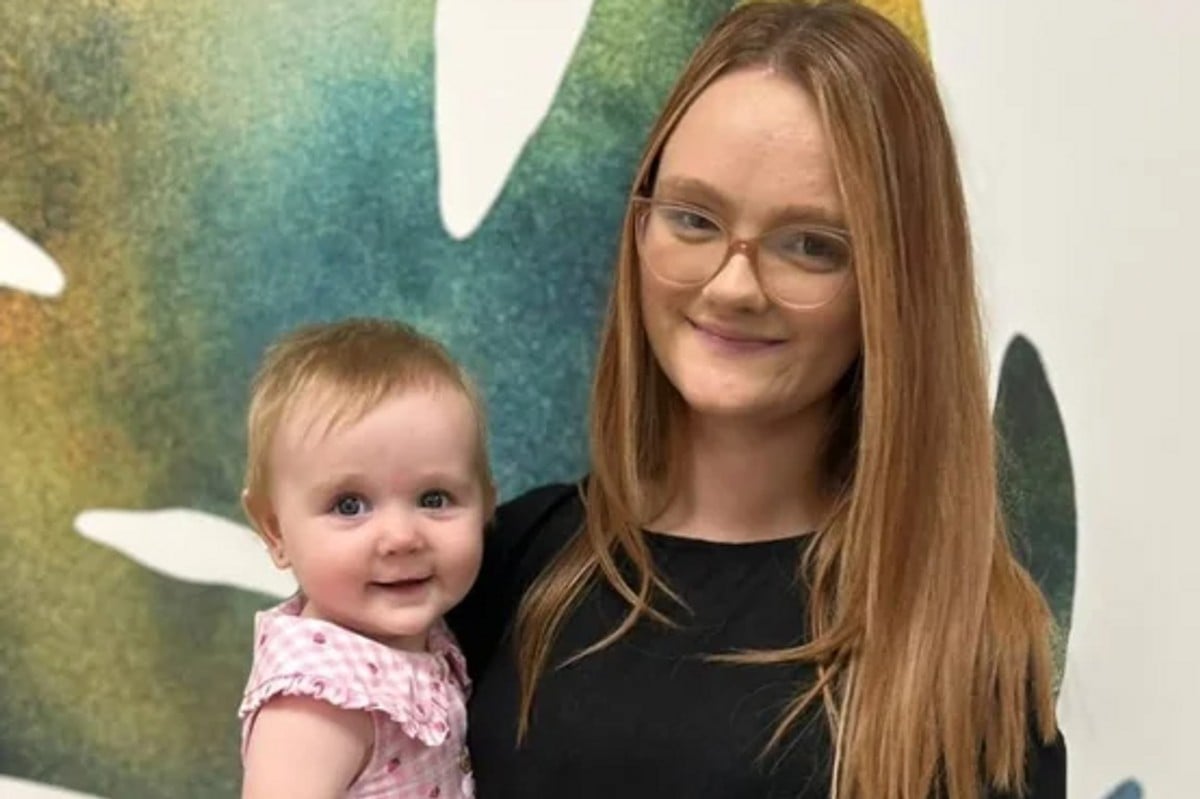
When Deanne's six-week-old daughter Winter seemed a bit off, the mum-of-two chalked it up to a common cold. Winter was snotty and had a slight cough — nothing that initially seemed concerning.
But when her little girl suddenly didn't want to feed and became more congested, a worried Deanne took her to see the GP.
"They said that because she hadn't had a bottle throughout the morning and hadn't had a wet nappy, we had to go to the hospital," Deanne told Mamamia.
During the 40-minute drive to the hospital, Deanne's concern grew with each passing moment.
"By the time we got to the hospital, (Winter) was actually gasping for air," Deanne recalled.
Watch a clip of Winter in hospital. Post continues below.
Winter was immediately taken to the resuscitation bay. What had started as a simple sniffle had rapidly evolved into a serious medical emergency.
"Everything happened so quickly… and it was very stressful not knowing what was actually going to happen with her," she said.
Winter was diagnosed with respiratory syncytial virus (RSV) — a common virus that typically causes mild, cold-like symptoms in adults but can have more serious implications for infants.
For more on RSV, listen to The Quicky. Post continues below.




























































































